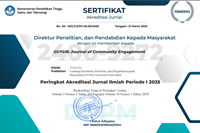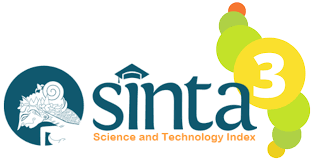Improving the Competence of MGMP Informatics Teachers in Preparing Gamification-Based IBT in the Era of Education 5.0
(1) * Ika Parma Dewi


 (Universitas Negeri Padang)
(Universitas Negeri Padang) Indonesia
(2) Lativa Mursyida (Universitas Negeri Padang)
Indonesia
(3) Ari Suriani (Universitas Negeri Padang)
Indonesia
(4) Ryan Fikri (Universitas Negeri Padang)
Indonesia
(5) Randi Proska Sandra (Universitas Negeri Padang)
Indonesia
(6) Akrimullah Mubai (Universitas Negeri Padang)
Indonesia
(7) Rizkayeni Marta (Universitas Negeri Padang)
Indonesia
(*) Corresponding Author
AbstractThe primary issue in technology-based learning assessment is the limited ability of teachers to utilize and develop gamification methods. Most teachers still rely on manual, paper-based evaluation techniques, resulting in suboptimal integration of technology in the assessment process. This challenge necessitates further exploration by education practitioners regarding the implementation of information technology (IT) in learning, particularly for MGMP Informatics teachers. This community engagement program, titled "Development of Internet-Based Testing (IBT) Using Gamification Learning Methods", was conducted at SMPN 1 Tanah Datar. The objectives of this program were to: (1) enhance technological literacy in the education sector; (2) strengthen interest and skills in technology literacy among MGMP Informatics teachers at the junior high school level in Tanah Datar Regency; and (3) improve teachers' ability to design internet-based assessment instruments using a gamification approach. The program was implemented using a participatory approach, comprising training sessions, interactive workshops, and hands-on practice in developing internet-based assessment tools. Participants were introduced to various digital evaluation platforms, such as Google Forms, Quizizz, and Kahoot, and were trained on how to integrate gamification elements into learning assessments. The results indicated that 85% of participants showed an improvement in their understanding and skills in utilizing internet-based assessment technology. Additionally, teachers began adopting gamification methods in assessments, leading to increased student engagement in the learning process. This initiative is expected to encourage teachers to continuously develop innovative and interactive assessment methods aligned with technological advancements in education. |
Keywords
Full Text: PDF
Refbacks
- There are currently no refbacks.
Copyright (c) 2025 Ika parma dewi parma dewi

This work is licensed under a Creative Commons Attribution-ShareAlike 4.0 International License.
This journal is licensed under

Creative Commons Attribution-ShareAlike 4.0 International License.








.png)

